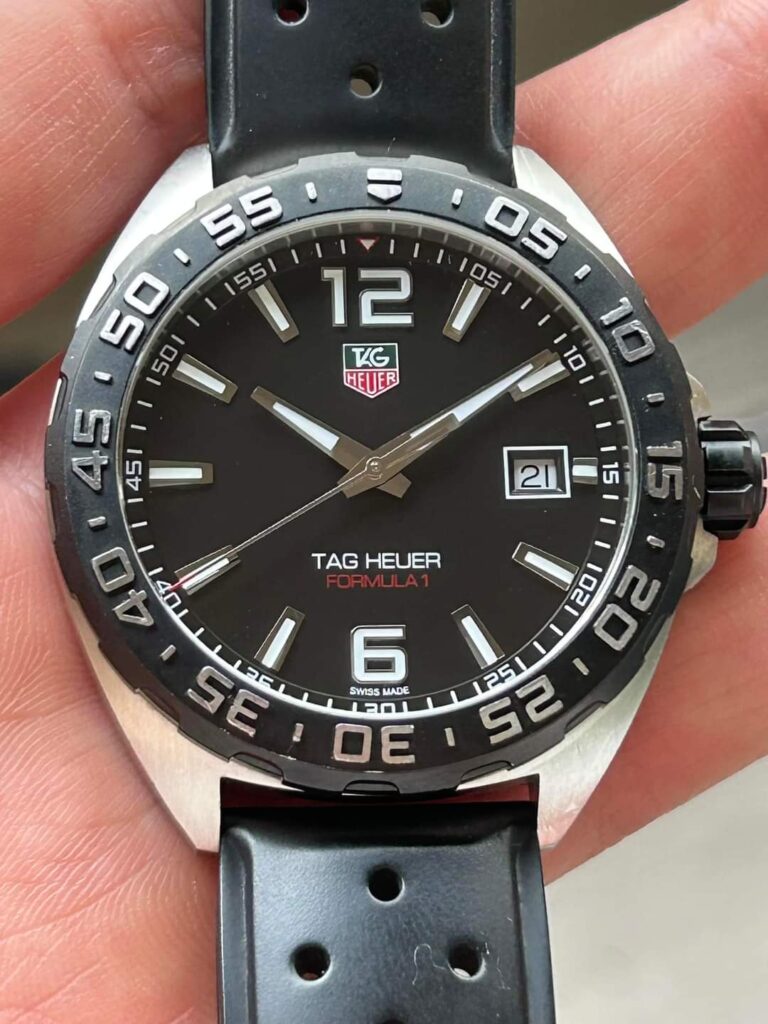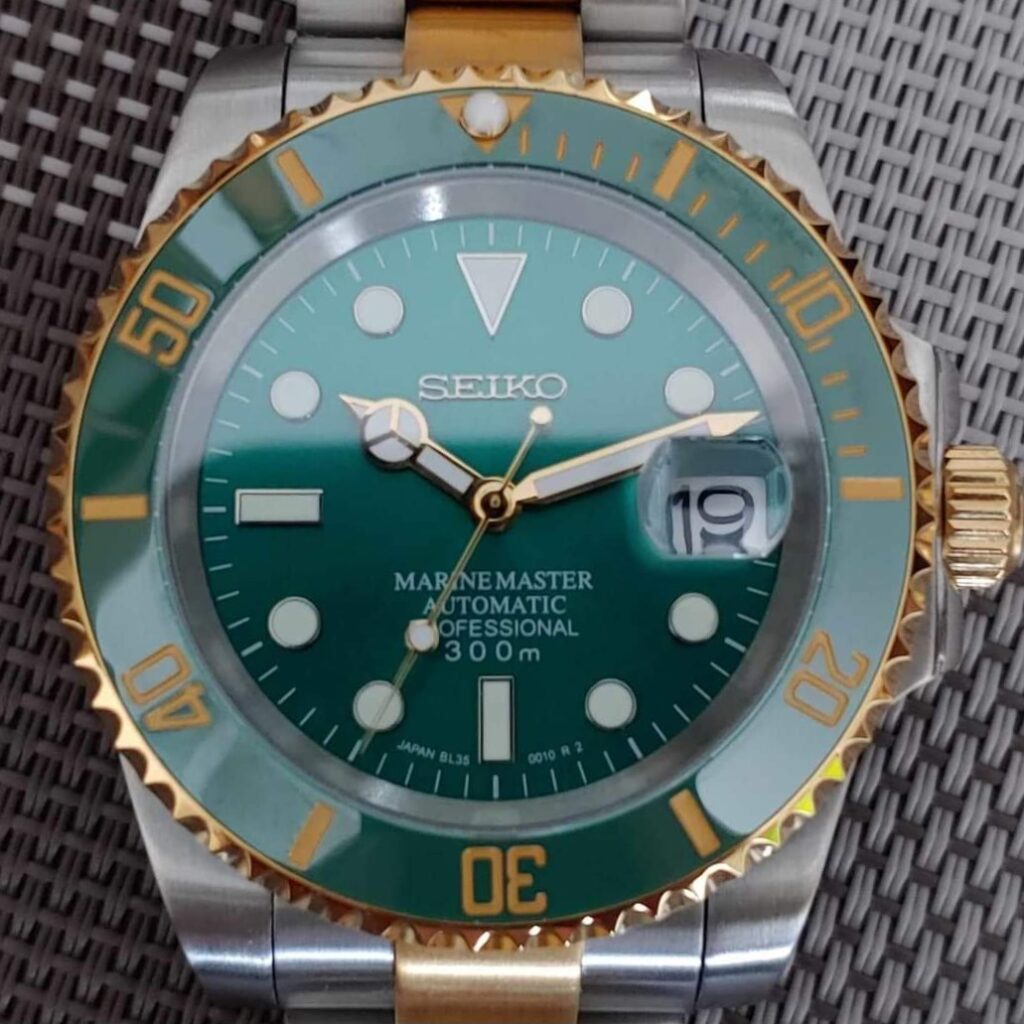Tale 33: The Titanium vs. Stainless Steel Watch: Easily Choose
Table of Contents
Are you torn between the lightweight allure of titanium and the timeless elegance of stainless steel for your next watch? Fear not, watch enthusiasts! In this comprehensive guide, we’ll delve into the captivating world of titanium and stainless steel watches, uncovering the pros and cons of each material to help you make an informed decision that perfectly aligns with your style and lifestyle.
Whether you’re an active adventurer seeking a durable timepiece or a discerning fashionista craving a sophisticated accessory, the choice between titanium and stainless steel can make all the difference. From the exceptional strength and corrosion resistance of titanium to the timeless appeal and versatility of stainless steel, we’ll explore the unique attributes that have made these materials the cornerstones of the watch industry.
So, let’s embark on a journey through the world of titanium and stainless steel watches and discover which one will elevate your wrist game to new heights.
The Allure of Titanium: Lightweight Strength and Unparalleled Durability
Titanium has long been a darling of the watch industry, captivating enthusiasts with its exceptional strength-to-weight ratio and uncompromising durability. This remarkable metal is renowned for its remarkable hardness, ranking between 8-9 on the Mohs scale, which is significantly higher than the hardness of stainless steel (5-6 on the Mohs scale).
But the benefits of titanium extend far beyond its physical properties. This material is also highly corrosion-resistant, able to withstand exposure to a wide range of chemicals and environmental conditions without succumbing to rust or tarnish. This makes titanium watches the perfect companion for water-based activities, outdoor adventures, and even everyday wear, as they maintain their sleek and sophisticated look even in the face of the harshest conditions.
One of the most significant advantages of titanium watches is their lightweight construction. Weighing in at 45% less than their stainless steel counterparts, titanium timepieces offer a level of comfort and wearability that is unmatched. This makes them an ideal choice for those with an active lifestyle or who simply prefer a more comfortable and unobtrusive watch on their wrist.
Pros of Titanium Watches
- Exceptional strength-to-weight ratio
- Highly corrosion-resistant
- Virtually scratch-proof
- Lightweight and comfortable
- Hypoallergenic and non-magnetic
Cons of Titanium Watches
- Generally more expensive than stainless steel
- Harder to machine and polish, resulting in a more muted finish
- Fewer options available compared to stainless steel

The Timeless Elegance of Stainless Steel: A Classic Choice
While titanium may have captured the hearts of many watch enthusiasts, stainless steel remains a perennial favorite in the world of horology. This versatile material has long been the standard in the industry, offering a unique blend of durability, affordability, and timeless style.
Stainless steel’s strength and corrosion resistance make it an ideal choice for everyday wear, ensuring that your timepiece can withstand the rigors of daily life without compromising its appearance. Additionally, stainless steel’s ability to be polished to a high sheen lends an air of sophistication and refinement to any watch, making it a popular choice for both casual and formal attire.
One of the key advantages of stainless steel watches is their wide availability and diverse range of designs. From the sleek and minimalist to the bold and sporty, stainless steel timepieces can be found in a variety of styles to suit any personal aesthetic. This versatility has made stainless steel a staple in the collections of both entry-level and high-end watch brands, catering to a wide range of budgets and preferences.
Pros of Stainless Steel Watches
- Durable and corrosion-resistant
- Affordable and widely available
- Versatile in terms of design and style
- Can be polished to a high sheen for a sophisticated look
- Easier to maintain and repair than titanium
Cons of Stainless Steel Watches
- Heavier than titanium, which can be less comfortable for some wearers
- More susceptible to scratches and scuffs than titanium
- May contain nickel, which can cause allergic reactions in some individuals
Frequently Asked Questions
What is the difference in weight between titanium and stainless steel watches?
Titanium watches are typically 40-45% lighter than their stainless steel counterparts. This significant weight difference can have a significant impact on the overall wearing experience, making titanium watches a more comfortable choice for those with an active lifestyle or who simply prefer a lighter feel on the wrist.
Are titanium watches more expensive than stainless steel watches?
In general, yes, titanium watches tend to be more expensive than stainless steel watches. This is due to the higher manufacturing costs associated with titanium, as it is a more challenging material to machine and process. However, the price difference can vary depending on the brand, movement, and overall design of the watch.
How do I care for a titanium watch?
Caring for a titanium watch is relatively straightforward. Avoid exposing the watch to harsh chemicals or abrasive surfaces, and clean it gently with a soft cloth and mild soap and water. Unlike stainless steel, titanium is highly resistant to scratches and corrosion, so you don’t need to worry about it becoming damaged over time.
Can I wear a titanium watch in the water?
Absolutely! Titanium’s exceptional corrosion resistance makes it an ideal material for water-resistant watches. Many titanium timepieces are designed to be water-resistant up to 200 meters or more, making them suitable for a wide range of water-based activities, from swimming to scuba diving.
How do I choose between a titanium or stainless steel watch?
When choosing between a titanium or stainless steel watch, consider your lifestyle, personal style, and any specific needs or preferences you may have. If you lead an active lifestyle or value lightweight comfort, a titanium watch may be the better choice. If you prioritize a classic, sophisticated look or a wider range of design options, stainless steel may be the way to go. Ultimately, the decision comes down to your individual needs and preferences.

Conclusion: Elevate Your Style with the Perfect Material
In this comprehensive guide, we have explored the captivating allure of titanium and stainless steel watches, highlighting the unique attributes that make each material a favorite among watch enthusiasts. From the exceptional strength, lightweight comfort, and corrosion resistance of titanium to the timeless elegance, versatility, and affordability of stainless steel, both materials offer compelling reasons to consider them for your next timepiece.
Ultimately, the choice between titanium and stainless steel comes down to your personal preferences, lifestyle, and style requirements. If you lead an active lifestyle and value a lightweight, durable watch that can withstand the rigors of daily wear, titanium may be the ideal choice for you. On the other hand, if you appreciate a classic, sophisticated look with a wide range of design options, stainless steel could be the perfect fit.
As you embark on your journey to find the perfect watch, remember that both titanium and stainless steel have their own unique charms and advantages. Whichever material you choose, you can be confident that you are investing in a timepiece that not only reflects your personal style but also stands the test of time. Embrace the qualities of each material and elevate your wrist game to new heights, knowing that your choice will enhance both your daily life and your overall aesthetic.
Our Latest Posts
- Tale 73: Luxury Watch Investing: How to Build a Valuable CollectionTale 73: Luxury Watch Investing: How to Build a Valuable Collection Investing in luxury watches has become an increasingly popular avenue for wealth preservation and growth. The luxury watch market is not only about aesthetics and craftsmanship; it also represents a unique investment opportunity that can yield substantial returns. As collectors and investors alike seek… Read more: Tale 73: Luxury Watch Investing: How to Build a Valuable Collection
- Tale 72: Automatic Watch Accuracy: How to Maintain PrecisionTale 72: Automatic Watch Accuracy: How to Maintain Precision In the world of horology, automatic watches stand out for their intricate mechanics and the artistry involved in their craftsmanship. However, many enthusiasts and potential buyers often ponder a crucial question: How accurate are automatic watches, and how can one maintain their precision? This blog post… Read more: Tale 72: Automatic Watch Accuracy: How to Maintain Precision
- Tale 71: Watch Mods: How to Elevate Your Look with Wave DialsTale 71: Watch Mods: How to Elevate Your Look with Wave Dials In the world of horology, watch modifications—or “watch mods”—have emerged as a popular way for enthusiasts to personalize their timepieces. Whether you’re looking to enhance functionality, aesthetics, or both, modding allows you to create a unique watch that reflects your style. One standout… Read more: Tale 71: Watch Mods: How to Elevate Your Look with Wave Dials
- Tale 70: Wearing a Watch Can Easily Improve Time Management SkillsTale 70: Wearing a Watch Can Easily Improve Time Management Skills In today’s fast-paced world, effective time management is essential for success. One of the simplest yet most powerful tools at your disposal is a wristwatch. While smartphones and digital devices abound, the humble wristwatch remains a classic accessory that can significantly enhance your ability… Read more: Tale 70: Wearing a Watch Can Easily Improve Time Management Skills
- Tale 69: The Rise of Digital Wrist Watches: Your Ultimate GuideTale 69: The Rise of Digital Wrist Watches: Your Ultimate Guide Digital wrist watches have transformed the way we perceive timekeeping, blending functionality with style. As technology advances, these timepieces have evolved from simple digital displays to sophisticated gadgets that cater to various lifestyles. In this blog post, we will explore everything you need to… Read more: Tale 69: The Rise of Digital Wrist Watches: Your Ultimate Guide
